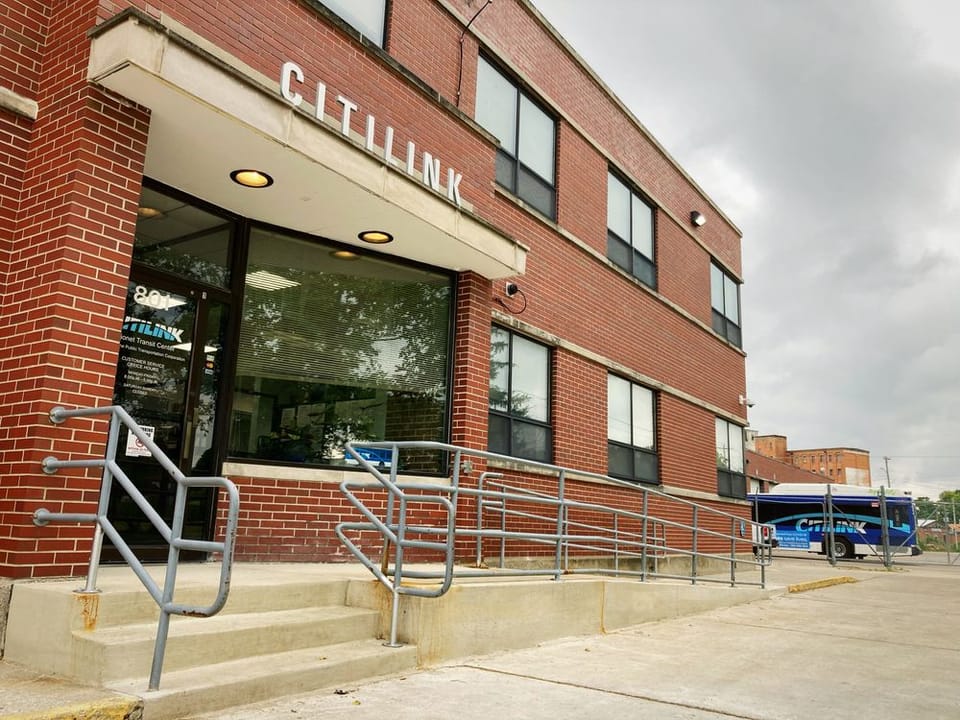The Deeper Dive: Citilink seeks special tax levy to avoid 'deep' cuts in 2025

Fort Wayne's primary bus service, Citilink, is facing a $2.5 million operating deficit in its $21 million budget for 2025. As a result, CEO and General Manager John Metzinger says its seeking a special tax levy from City Council next week to avoid "deep" service cuts – about 14% – "beyond the already meager levels of public transportation available in Fort Wayne after state funding went flat over a decade ago." (We reported on Citilink's impending fiscal cliff last year.)
We sat down with Metzinger to learn more about the special tax levy, the future of public transportation funding in Fort Wayne and what citizens can do to make their voices heard.
How much is the proposed special tax levy?
JM: The levy amount is $2.8 million to generate a net of $2.5 million after statutory constraints like the property tax cap. It would affect properties in Citilink’s taxing district not yet above the tax cap. Taxpayers could expect to pay about $3.90 annually for a house with $100,000 in assessed value, $11.90 for a house at $200,000 valuation.
How did the special tax levy come about?
JM: Our 2025 budget includes a special levy increase to resolve our budget deficit. Beyond raising fares, this is the only option that Citilink’s Board has to resolve the budget shortfall, without direct city or county contribution. Indiana Law requires our Board to take this path in the case of a budget shortfall (see IC 36-9-4-49), “…the board … shall levy a special tax upon all property within the taxing district…” Our board approved the 2025 budget with the special levy last month, and now it moves to the City Council, who by statute have ultimate authority to authorize or reject our budget.
What will happen if the special tax levy is not approved by City Council?
JM: If rejected, Citilink’s budget will revert to the 2024 budgeted expense without a levy increase, and Citilink will be forced to cut service. We anticipate a deep cut, about 14% of service, beyond the already meager levels of public transportation available in Fort Wayne after state funding went flat over a decade ago. Cutting service will swell the vicious cycle of decline that started a decade ago: service cuts bring ridership losses and less formula funding, resulting in additional cuts, declining ridership, less funding, further cuts, and so on. It’s a crucial moment. Citilink ridership is growing substantially; we have fully restored ridership to the pre-pandemic level of 1.6 million annual passenger trips, while most public transportation agencies have achieved only an 85% recovery. We have been meeting with City Council and Statehouse representatives to inform them about Citilink’s budget challenge and the expansion opportunities. We are optimistic.
If City Council approves the tax levy, will it provide a sustainable revenue stream to grow public transportation in the future?
JM: Technically, all City Council needs to do is to approve our budget; the Citilink Board has already approved the special levy. Funding will preserve current Citilink service levels through 2025. It’s a single year levy, meaning that sustainable revenue sources will be necessary to resolve the structural deficit challenge to preserve existing service levels for subsequent years. Citilink is eager to expand public transportation, as we understand the community needs and wants it; however, other sustainable revenue sources will be needed for expansion. This is a good time to discuss the value of public transportation as a worthy investment. Those who want more transit need to share their stories with City Council and statehouse leaders.
Citilink was recently featured in the Indiana Capital Chronicle for being “delinquent” on its pension plans, missing its minimum for the last five years. Can you discuss how this will affect the levy ask and budget review with City Council next week?
JM: This issue has relatively minor effect on Citilink’s budget and special levy. Citilink’s pension is “delinquent” due to several factors, including changing market conditions and actuarial estimations of the pension plan’s liability. Citilink’s pension is solvent; however, an annual shortfall in the amount of about $50,000 in employee/employer contributions for multiple years has put the plan in a delinquency status, according to a new pension law passed by the legislature earlier this year. The new law requires Citilink to present a remediation plan to the Legislature’s Pension Management Oversight Committee, which is what (that) meeting in Indianapolis was. Citilink and it’s labor union are in contract talks and will resolve this matter by early next year.
If people want to make their voices heard on this issue, what can they do?
JM: Contact your City Council representatives and/or attend the City Council meeting on Tuesday, October 8, at 5:30 p.m. This is the public hearing for our budget — an opportunity for citizens to share their stories about the value of Citilink service. I believe it will be critical for these stories to be told.
Demand for public transportation is strong in Fort Wayne and New Haven. Let’s preserve service and create a virtuous cycle of expansion and growth. Now is the critical moment for those in the community who value public transportation and want to see it preserved or expanded to tell their stories.
